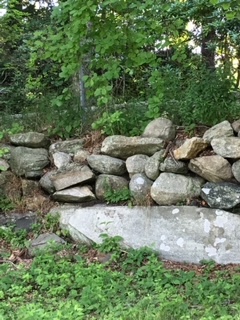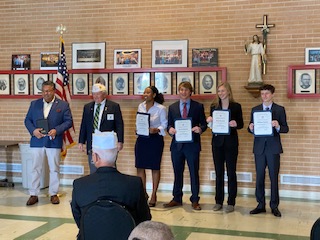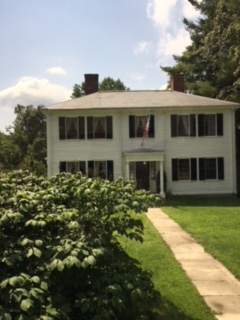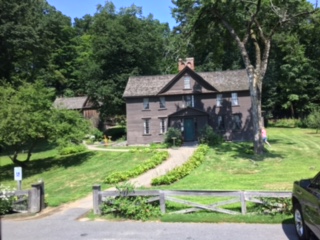Lessons from a Year in Isolation
by Paula Gail Benson
A year ago, so much of the life we were used to changed
as we learned that Covid 19 not only was deadly, but spreading rapidly. I have
a vivid memory of meeting with church council members and making the decision
to “postpone” our bi-annual presentation of the Living Last Supper. At the
time, we hoped this would be for a few weeks or months. We have not yet
rescheduled.
During this past year, I found myself retreating into
more solitary pursuits. I rediscovered the joys of reading books in series,
which I had not had time for in the last few years. In addition, I learned
about television programing and movies available on Apple and Prime.
Some of what I discovered took me to historical paths,
I previously had not explored. I had seen several movies and series about Henry
VIII and Elizabeth I, but I knew little about Henry VII and the War of the
Roses. Watching The White Princess, about Elizabeth of York, and The
Spanish Princess, about Catharine of Aragon, both based on books by
Phillippa Gregory, gave me a different perspective about English history and
the Tudors. In addition, going further back in time with the Brother Cadfael
stories, based on books by Ellis Peters and played by Derek Jacobi, made me appreciate
modern conveniences and customs in comparison with the medieval lifestyle.
Recently, my viewing had shifted to American history.
I discovered April Morning, based on a book by Howard Fast, that told
the story of a young man’s experience when the British troops marched from
Boston to Concord and exchanged fire with a group of colonists in Lexington,
known as the “shot heard round the world.” I tried without luck to discover
where the movie had been filmed.
A few years ago, I had the opportunity to go to Boston
for a conference. I went early and stayed late to do some sightseeing in the
area. The movie featured so many locations that were familiar to me from that
trip. In particular, I had taken photos of the stone walls along the road from
Lexington to Concord. After the colonists had so many casualties in Lexington,
they stationed themselves behind the stone walls to fire on the British troops
as they returned to Boston. Following the movie, I looked back at the photos I
had taken of those walls, having a new regard for the history that had taken
place around them.
Previously, I wrote here about watching What the
Constitution Means to Me, a filmed version of Heidi Schreck’s Broadway play
based on her teenaged experiences of competing in the American Legion
Oratorical contests for scholarship money. Having judged a local American Legion
Oratorical, I appreciated very much seeing the perspective from a competitor.
Over the weekend, South Carolina held its statewide American
Legion Oratorical competition. Unfortunately, due to Covid 19 continuing restrictions,
the national one will not take place this year.
I was pleased to be asked to participate as a judge for
South Carolina. My church hosted the competition and I found myself back in the
room where so many decisions had been made to cancel activities a year ago.
During the competition, in explaining how the
Constitution is a living document, one of the students spoke about the events
that took place around Lexington and Concord. It was wonderful to hear that a
young person had spent a year in isolation as I had, learning from the past and
appreciating its impact on the present and future.
In spite of our year
in isolation, we go on—still learning and applying the lessons of history to
our current time. Hopefully, next year will bring the opportunity to return to travels
and gatherings.





